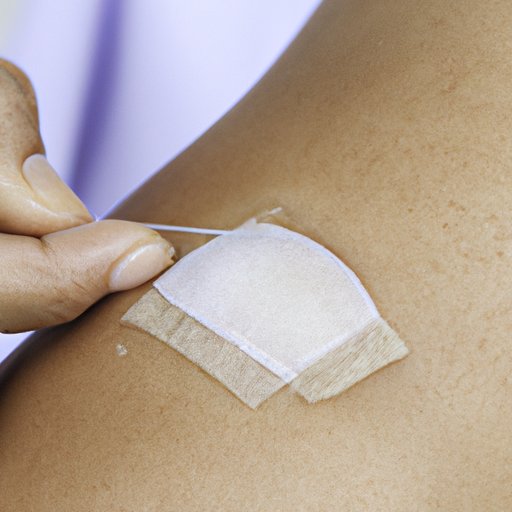
Introduction
Healing from surgery can be a challenging process, but scar treatment can help speed up the healing process and improve the final outcome. However, timing is a critical factor in achieving the best results. In this article, we explore when to start scar treatment after surgery and explain why timing matters. We’ll discuss the ideal moment to begin treating your scar, tips for starting scar treatment, and the benefits of starting early.
Timing Matters: The Best Time to Start Scar Treatment after Surgery
While there’s no one-size-fits-all answer to when to start scar treatment after surgery, starting treatment at the right time can significantly impact the outcome. Ideally, scar treatment should start within the first two weeks after the surgery. This time frame allows the wound to close completely, reducing the risk of infection and promoting better healing.
Starting scar treatment too early can put unnecessary stress on the wound, possibly harming the healing process. Waiting too long to start scar treatment will allow the scar to become more established, making it more difficult to treat and potentially resulting in a permanent mark.
Several factors can affect the timing of scar treatment after surgery, such as the type of surgery, the size and location of the wound, and the patient’s overall health. Therefore, it’s crucial to consult with a healthcare provider to determine the ideal time to start scar treatment.
Healing from Surgery: Understanding the Ideal Moment to Begin Treating Your Scar
The body’s natural healing process after surgery starts with inflammation, followed by the formation of new tissue and the remodeling of the wound. During this time, it’s important to monitor the scar and look for signs that indicate it’s time to start scar treatment.
These signs may include redness, itchiness, swelling, or irritation around the scar. When these symptoms appear, it’s a good sign that the wound is healed enough to begin scar treatment.
Scar Prevention 101: Important Things to Know About Starting Treatment After Surgery
Scar prevention techniques are crucial in minimizing the appearance of scars and improving the outcome of scar treatment. Scar prevention starts right after surgery, with proper wound care techniques such as keeping the wound clean and dry, avoiding sun exposure, and preventing any tension on the wound.
Starting scar treatment after surgery doesn’t mean the patient forgot to follow these preventive measures. It’s a natural step in the healing process and can help improve the final results. Scar prevention and treatment are interconnected, with the same goal of minimizing the appearance of scars and improving the overall outcome.
Tips for starting scar treatment after surgery include consulting with a healthcare provider, following a specific treatment plan, and using products specifically formulated to treat scars.
Don’t Wait! Why Early Scar Treatment Makes All the Difference After Surgery
Starting scar treatment early can help improve the final outcome and minimize the appearance of scars. Early treatment can help reduce inflammation, promote healing, and prevent the scar from becoming more established and difficult to treat.
Waiting too long to start scar treatment can increase the risk of developing a permanent mark, and it may require more aggressive treatments down the road. Additionally, scars that receive treatment early are generally more responsive to treatment and show better results.
Real-life cases demonstrate the importance of early scar treatment, for example, a patient who had early treatment for a keloid scar had significantly better results than a patient who waited several months before seeking treatment.
Timing Is Everything: How to Time Your Scar Treatment Right After Surgery
Timing your scar treatment after surgery requires careful consideration of various factors. Consult with your healthcare provider to determine the ideal time to start treatment. Bear in mind that treatment should not start before the wound has completely closed.
Factors that should be considered in timing scar treatment after surgery include the type of surgery, the size and location of the wound, the patient’s overall health, and the type of scar that’s likely to form.
Tips for getting started with scar treatment after surgery include using products specifically formulated for scar treatment, following the treatment plan carefully, and being patient since scar treatment takes time and consistency.
Conclusion
Starting scar treatment at the right time can significantly impact the final outcome of surgery. Early treatment can help reduce inflammation, promote healing and prevent the scar from becoming more established. Conversely, waiting too long to start scar treatment can increase the risk of developing a permanent scar and may require more aggressive treatments later.
When timing scar treatment after surgery, it’s crucial to consult with a healthcare provider and carefully consider the various factors that may affect timing. By following the right steps and using products specifically formulated for scar treatment, patients can achieve the best possible outcome from surgery.
Begin scar treatment at the right time and give your scar the best fighting chance to heal smoothly and effectively.




